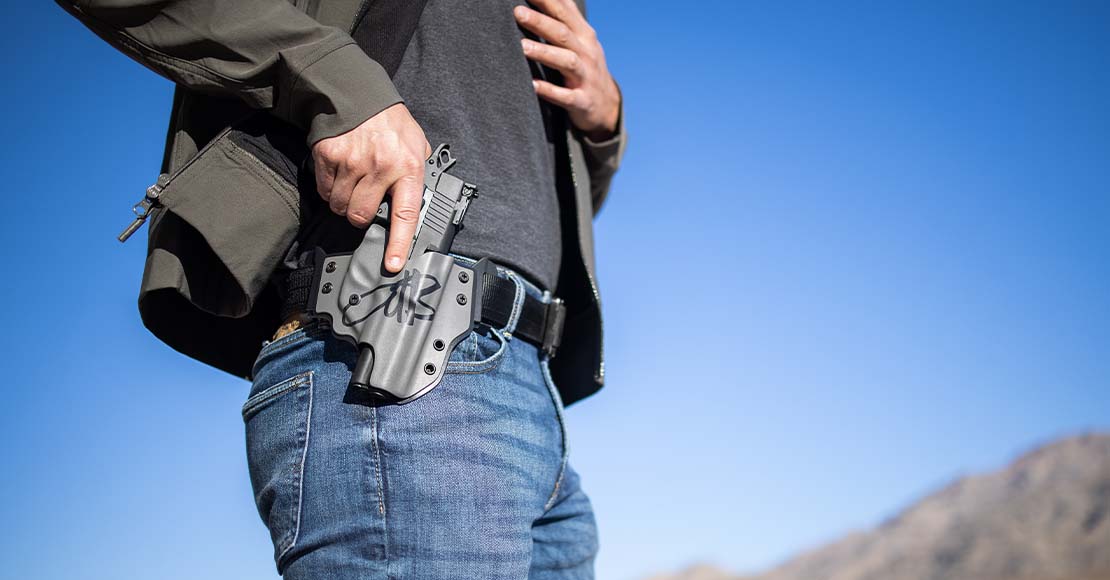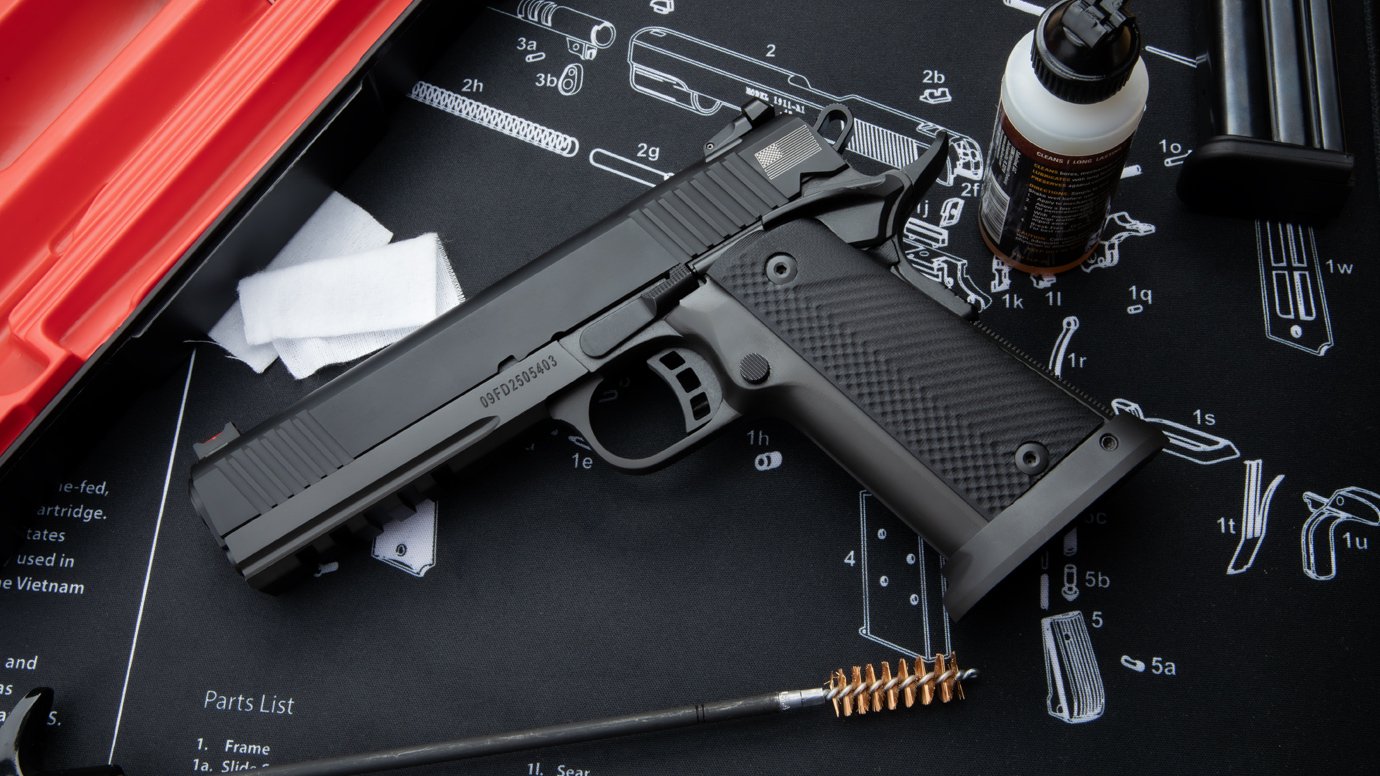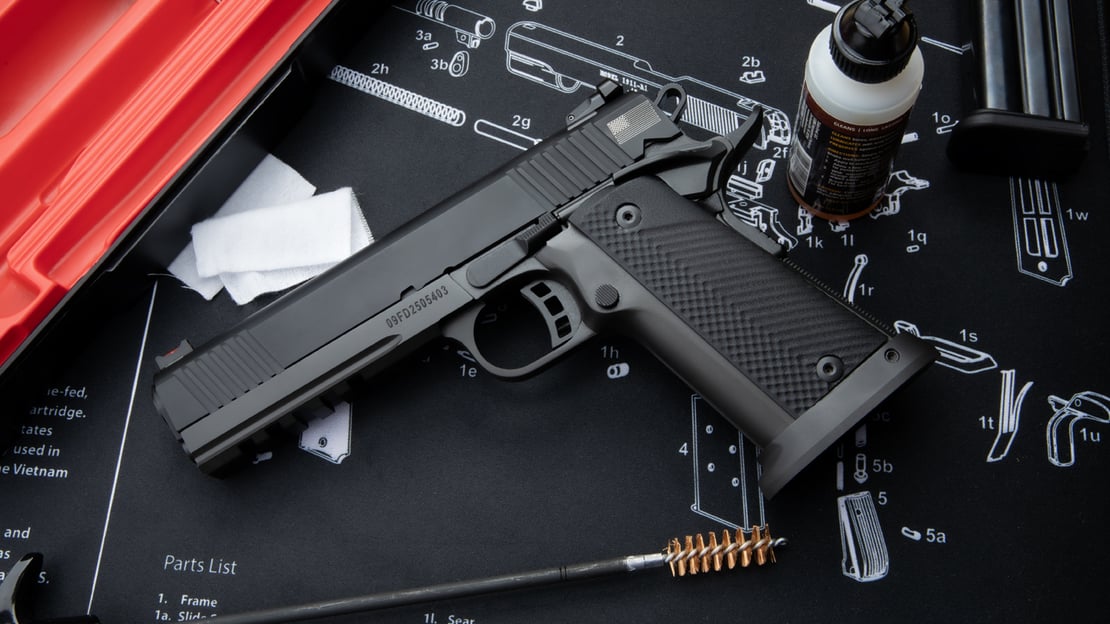Getting Your 1911 Concealed Carry Permit: A Primer
Posted by Team Armscor on Dec 29, 2021 10 Minute Read

Did you get that 1911 you’ve been looking at all summer? Perhaps now it's time to take the next steps and obtain concealed carry permit? Let us help you get started. Here are some things you should know. Warning up front: This article runs a bit toward the long side, but it’s well worth your time if you’re serious about safety and following the law (and you most definitely should be).
Check Your State Laws
The most important consideration for gun owners is what legal restrictions their state has on their right to carry a firearm in public. Some states have constitutional carry, which refers to legally carrying a handgun without a license or permit, while other states require permits or otherwise place restrictions on who can carry a handgun as well as how they can carry it.
To find out the laws in your state, visit the Gun Laws by State page on the NRA Carry Guard website.
If your state requires a concealed carry permit, make sure you know the particulars of the law. They vary from state to state and, in some cases, quite significantly. For example, some states may require applicants to take a class beforehand, while others might simply require applicants to stop by a courthouse or sheriff's office to fill out an application form and pay a fee. Do a little prep work beforehand and develop a checklist of what you need to do.
Another important item to look into is whether your state is a “shall issue” or "may issue" state. In a "shall issue" state, as long you meet the permit requirements, the issuer must give you a permit. By contrast, in a “may issue” state, even if you meet the requirements, the issuing authority is not required to give you a permit. These states also typically require applicants give a written reason on why they should receive permits.
Currently, the following states do not require a permit for concealed carry:
- Alaska
- Arizona
- Idaho
- Kansas
- Maine
- Mississippi
- Missouri
- New Hampshire
- North Dakota
- Oklahoma
- Vermont
- West Virginia
Check out the NRAILA website for concise information on your state’s gun laws and permit reciprocity among other states.
Background Checks
Generally speaking, in order to qualify for a permit, you must be a U.S. citizen or resident of the permit-issuing state (but not in all cases). If you have a prior felony conviction or are under indictment for a felony, you won’t be eligible. Having a mental illness is also a disqualifier. Essentially, if you can pass a background check, you're all clear.
There are five separate categories that determine whether a person can purchase a gun.
Criminal History or Drug Use
If the person who is attempting to buy the firearm has ever been convicted of or is under indictment for a crime punishable by imprisonment for more than one year, they will not pass the NICS background check, and they will be unable to purchase a firearm. The same is true for fugitives and those who are unlawful users or are addicted to any controlled substances.
Mental Health
In cases where the potential buyer is adjudicated as a mental defective or has been involuntarily committed to a mental institution, they will be barred from purchasing a firearm. What qualifies as being "involuntarily committed"? That is a bit complicated. If law enforcement officials have taken the individual in for a mental evaluation and the doctors decide to continue treatment after an initial 72-hour period, they are deemed as being held involuntarily and will lose their ability to purchase a firearm.
Non-Citizenship
Another sale-ending instance is non-citizenship. In cases where the would-be buyer is illegally or unlawfully in the United States or has been admitted into the U.S. under a non-immigrant visa, they will be barred from purchasing a gun. The same is true for former U.S. citizens who have since renounced their citizenship.
Domestic Violence
In the U.S., people who have been convicted of a "misdemeanor crime of domestic violence" or are subject to certain domestic violence protective orders are prohibited from purchasing or possessing a firearm. The Lautenberg Amendment classifies a misdemeanor crime of domestic violence as "any state or federal misdemeanor that has, as an element, the use or attempted use of physical force, or the threatened use of a deadly weapon, committed by a current or former spouse, parent, or guardian of the victim, by a person with whom the victim shares a child in common, by a person who is cohabiting with or has cohabited with the victim as a spouse, parent, or guardian, or by a person similarly situated to a spouse, parent, or guardian of the victim."
Dishonorable Discharge
Former United States military personnel who were dishonorably discharged from their position. Dishonorable Discharge is a military disqualification that is entered into the NICS indices by the department of defense or the relative military branch. According to Vet Verify, in addition to losing their ability to own a gun, dishonorably discharged soldiers can lose the right to vote, the right to receive governmental assistance, the ability to work for the government and the ability to secure bank loans.
What Are the Possible Results?
There are three possible outcomes with a NICS background check: approved, delayed, and denied. When you've been approved, it means that the NICS program did not uncover anything in its background check that would prohibit you from owning a firearm. The "delayed" response means that the NICS search found a record that requires more research before it can determine whether or not the applicant is disqualified. A denied response from a NICS search means that the program uncovered something in its check that disqualifies you from owning a gun. If your application has been denied or delayed, you can appeal it by following the procedures in the FBI's NICS Guide for Appealing a Firearm Transfer.
The vast majority of NICS background checks return with instant approval, so there's no need for the average aspiring gun owner to be concerned. Your dealer will be very familiar with the process, and odds are good that you will be in and out with your firearm in hand.
Prepare for a Class
In the event you need to take a class, it’s best to come prepared. You may engage in some shooting in the class, so bring eye and ear protection and know proper gun safety rules of thumb. Even though you’ll likely go over these rules in the class, there’s nothing wrong with coming prepared.
It's also wise to know proper range etiquette and how to maintain a pistol before you attend a training class. If you happen to have a Rock Island Armory 1911, you should definitely download this gun-care guide to keep it running well into the future.
Do You Need Insurance?
Insurance is a hot-button issue in the concealed-carry community. And it can be surprisingly difficult to find reliable information on the purpose and application of concealed-carry insurance. Here are a few things to keep in mind.
What is It?
Concealed-carry insurance protects these gun owners from massive, unexpected expenses as the result of civil proceedings following their use of a firearm for self-defense. The fact of the matter is that our country is notoriously litigious when it comes to defensive gun use and, without the proper protections in place, using your gun legally and defensively can still land you in deep financial trouble.
It Comes in Different Forms
There are a few different types of concealed carry insurance, and each one comes with its own set of costs, benefits and applications. Check out a few of the most popular forms of concealed carry protection below:
- Armed Citizens Legal Defense Network (ACLDN)
- NRA Carry Guard
- United States Concealed Carry Association (USCCA)
- U.S. Law Shield
State Laws Are Different
In some states, stand your ground laws protect concealed carry permit holders from civil lawsuits in self-defense scenarios. Because of this, it's important to check your local laws as well as the laws of any state you may be carrying in. If your state protects you from civil lawsuits, then concealed carry insurance may not be necessary for you. However, if you live in a state that does not offer these protections, you could face tens, if not hundreds of thousands of dollars in legal fees that could potentially be avoided through concealed carry insurance.
As with every other type of elective insurance, whether or not you invest in concealed carry insurance is a matter of personal preference, and the drawbacks and benefits vary greatly depending upon your specific situation. If you are seriously considering concealed carry insurance, do your research and find the plan that fits your budget and your needs the best.
There you have it. This was just a quick overview of the things you’ll need to keep in mind when getting your concealed-carry permit so again: Do your research. Read up on your state’s laws. Make sure you know how to operate your firearm safely. It’s unlikely you’ll ever need to use it for self-defense, but if you do, you want to make sure you’re carrying it safely and legally. Good luck!







